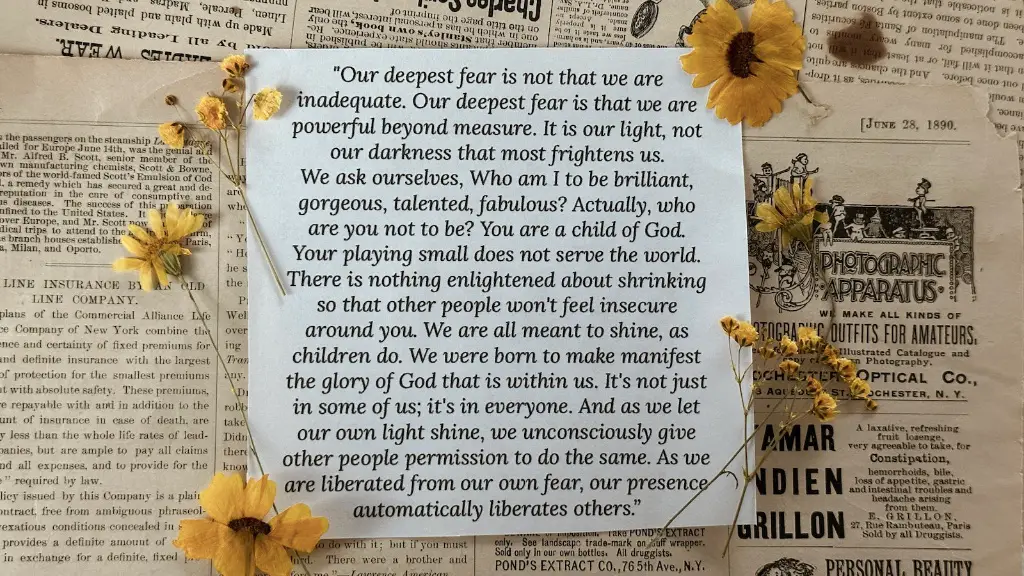Langston Hughes – His Impact on Society
As one of the most renowned writers of the Harlem Renaissance, Hughes was dedicated to the upliftment of African Americans during a time of racial oppression. He created revolutionary, thought-provoking literature that focused on the lives and struggles of Blacks in America. His influence on society and literature was significant, and his impact is still felt today.
Langston Hughes was born in Joplin, Missouri, in 1902. He first began writing poetry and stories at the age of 13 and soon became the leader of the Harlem Renaissance, the Black literary movement of the 1920s and 30s. He was the author of many works of poetry and fiction, including novels, plays, and children’s books.
Hughes’s work explored themes of racial identity and oppression that resonated with African American audiences. He also wrote about the beauty and power of African Americans and about the importance of perseverance. He wrote in various styles, including jazz poetry and free verse, and his works featured vivid imagery and distinct voices. His influence on American literature and culture was significant.
Perhaps Hughes’s most important contribution to society was his frank and powerful exploration of the African American experience. His work depicted the struggles and resilience of Black communities and challenged the status quo. Hughes’s writing was unlike anything that had been seen before, and it had a profound effect on African American literature. He was also a vocal advocate for civil rights, pushing for greater representation for African Americans in all aspects of society.
Hughes’s influence was not limited to African Americans. His writings have been acclaimed by scholars, critics and readers around the world. In addition to being a celebrated author and poet, he was also an important figure in the civil rights and Black Power movements. Hughes was an inspiration to later generations of activists and artists, who drew on his work in their own creative efforts.
Today, Langston Hughes’ legacy is felt throughout the world. His works are taught in classrooms, celebrated in festivals and referenced in the works of modern writers. He continues to influence literature and culture, inspiring others to explore and celebrate the African American experience.
Hughes and the Struggle for Racial Equality
Throughout his lifetime, Langston Hughes played an active role in the struggle for racial equality. He was a vocal proponent of civil rights and social justice, and he used his voice to raise awareness about the plight of African Americans. In the 1940s, he initiated an effort for racial justice by writing about the struggle for civil rights in his poetry and nonfiction work. Hughes’s writing served as an inspiration to later civil rights activists, and he was an important figure in the civil rights movement.
In 1951, Hughes organized a march in Washington, DC to promote equal rights and to protest racial segregation. He was also a member of various civil rights organizations such as the Congress of Racial Equality and the NAACP. Hughes used his influence to push for greater representation of African Americans in American society, helping to pave the way for the civil rights movement of the 1950s and 60s.
In addition to organizing marches and participating in civil rights organizations, Hughes was a vocal proponent of desegregation. He wrote numerous articles, poems and plays to raise awareness about racial inequality and segregation. He used his writing as a form of protest, and his work was a powerful force for social change.
Hughes was an influential figure in the fight for racial equality, and his activism helped to shape public opinion on race relations in the United States. His writings and his activism inspired future generations of civil rights activists, and his legacy continues to inspire those who strive for social justice.
Hughes and the Arts
Langston Hughes was not only an activist, but also an important figure in the cultural life of African Americans. He helped to introduce African American narrative, folk and jazz into mainstream American literature. He also brought the art of storytelling and improvisation to the Harlem Renaissance. His influence on African American literature and art was significant.
Hughes was an accomplished writer, and he excelled in various writing styles. He wrote poetry, short stories, plays and novels. His writing explored the lives and experiences of African Americans, and he used jazz, blues and poetry to communicate his ideas. Hughes’s work featured vivid imagery and distinctive voices, and it helped to shape the way we think about African Americans and their experience.
In addition to his writing, Hughes also played an important role in the visual arts. He collaborated with visual artists such as Aaron Douglas and Romare Bearden, and his writings served as inspiration for their works. Together, these artists created unique and powerful art, which helped to shape the visual culture of the Harlem Renaissance.
Hughes was also influential in the world of music. He wrote poetry, songs and musical compositions, and he was an important figure in the development of African American musical styles such as jazz and blues. His influence on African American music was significant, and he was a major figure in the Harlem Renaissance.
Langston Hughes was a major force in the cultural and literary life of African Americans. He was an important figure in the Harlem Renaissance, and his influence on literature, art, and music is still felt today. His work opened up new possibilities for African Americans in the arts, and he helped to shape the way we think about African American culture.
Hughes and Education
Langston Hughes was a passionate advocate for education. He dedicated himself to teaching and learning and believed that education was the key to success for African Americans. He was an advocate for educational reform and for increased access to educational opportunities for African Americans.
Hughes worked as an educator throughout his life, and he was particularly devoted to teaching children. He wrote stories, plays and poems for children, and he often delivered educational lectures to children and young adults. Hughes also advocated for greater educational access for African Americans, and he wrote numerous articles and essays urging African American youth to pursue their education.
Hughes also supported educational institutions in the African American community. He worked with the National Urban League to help fund the Harlem Community Day School and the Opportunity Institute, both of which provided educational opportunities for African Americans. Hughes believed in the power of education, and he used his influence to further educational opportunities for African Americans.
Today, Hughes’s legacy is still felt in the educational system. His writings, which focus on education and Black history, are still widely read and taught in classrooms. His advocacy for educational reform and access for African Americans is also remembered, and his influence can be seen in the increased educational opportunities for African Americans today.
Hughes’s Legacy
Langston Hughes’s influence on American literature, culture, and society is still felt today. He was a major figure in the Harlem Renaissance, and his work served as an inspiration to later civil rights activists and artists. He used his voice to push for racial equality and to raise awareness about African American struggles. His influence on literature, art, and music was significant, and his dedication to education helped African Americans gain greater access to educational opportunities.
Hughes’s legacy continues to inspire generations of writers, artists, and activists. His writings are still widely read and praised, and he is remembered as one of the most influential authors of the 20th century. Hughes’s impact on society and literature was significant, and his influence is still felt today.





